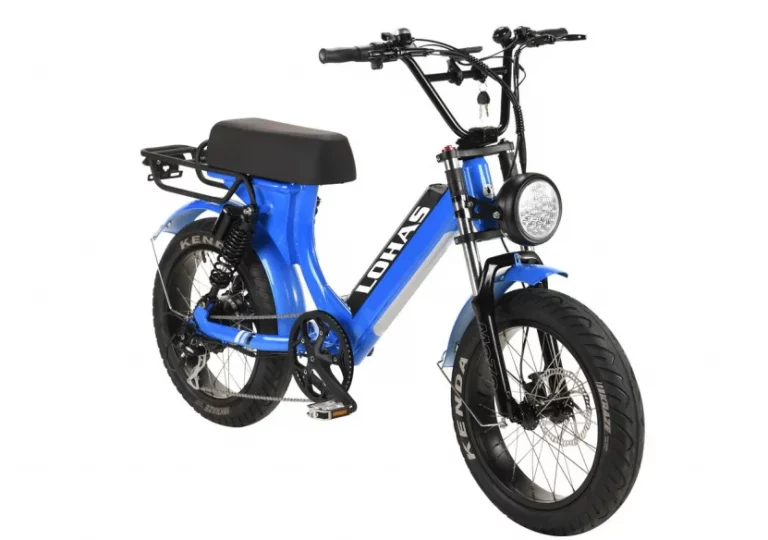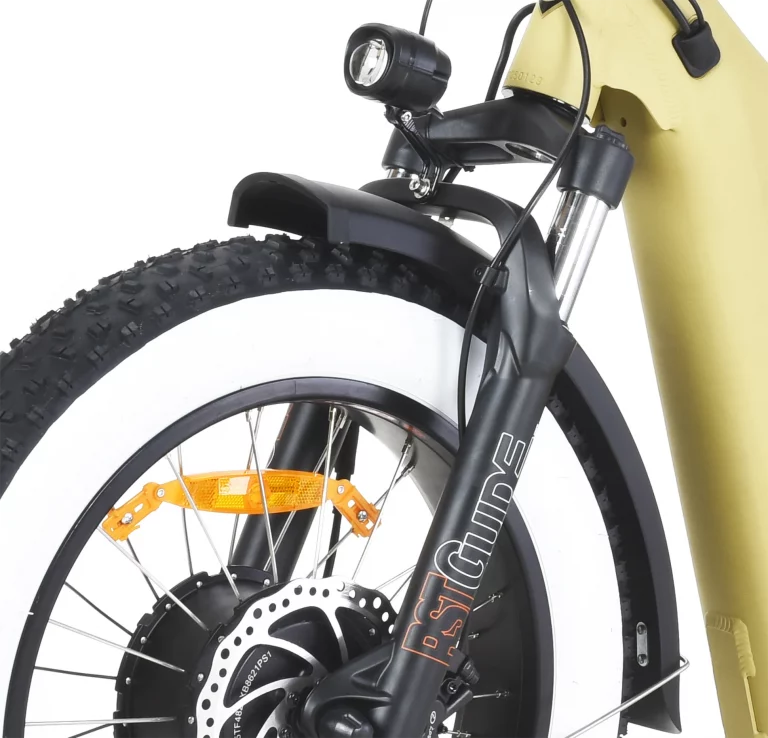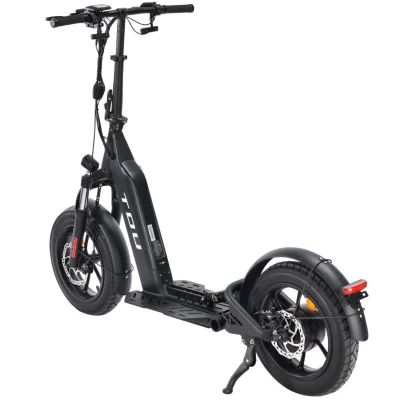E-bikes have experienced a significant rise in global popularity, with sales increasing by more than 50% in Australia and an astounding 145% in the UK during 2020. This upward trend signals a notable shift towards sustainable urban mobility solutions. As cities endeavor to address environmental degradation and advocate for eco-friendly practices, e-bike adoption becomes increasingly critical. The key factors fueling this momentum include the clear environmental advantages, compelling cost-effectiveness, and promising future potential that e-bikes offer. Regardless of whether they are referred to as e-bikes, e-bicycles, or simply bikes, this mode of transportation is fundamentally altering our approach to commuting and sustainability.
Environmental Benefits of E-Bikes
Reduction in Carbon Emissions
Comparison with Cars and Electric Cars
When comparing the carbon emissions of electric bikes to cars, the difference is striking. At 15,000 miles, an electric bike emits only 300kg of CO2, whereas a car emits a significantly higher amount of 7,000kg. This data clearly shows that electric bikes are more environmentally friendly than cars.
Impact on Urban Air Quality
The impact of e-bikes on urban air quality cannot be understated. By choosing to ride an e-bike instead of driving a car, individuals contribute to reduced pollution levels in cities. This shift results in cleaner and healthier air for everyone to breathe.
Yongkang LOHAS Vehicle Co., Ltd covers an area of more than 18,000 square meters. We have two assemble line, and use advanced manufacturing equipment and techniques to produce high-quality electric scooters and electric bike that meet our strict standards.
Energy Efficiency
Renewable Energy Charging
One key aspect of the energy efficiency of e-bikes is their ability to be charged using renewable energy sources. By utilizing renewable energy for charging, e-bike users can further reduce their carbon footprint and promote sustainable practices.
Lower Energy Consumption Compared to Cars
Another significant advantage of e-bikes is their lower energy consumption when compared to cars. Research indicates that riding an e-bike consumes far less energy than driving a traditional vehicle. This difference highlights the efficiency and eco-friendliness of e-bikes as a mode of transportation.
Contribution to Sustainable Urban Mobility
Integration with Public Transport
E-bikes play a crucial role in promoting sustainable urban mobility by integrating seamlessly with public transport systems. Commuters can easily combine e-bike rides with other modes of transportation, reducing overall carbon emissions and enhancing convenience.
Reduction in Traffic Congestion
A notable benefit of e-bikes is their contribution to reducing traffic congestion in urban areas. As more people opt for e-bikes instead of cars, there is a noticeable decrease in traffic volume, leading to smoother traffic flow and less time spent commuting.
By understanding the environmental benefits, energy efficiency, and contribution to sustainable urban mobility that e-bikes offer, individuals can make informed choices that positively impact both personal well-being and the environment. Making the switch to an e-bike not only reduces carbon emissions but also promotes healthier cities and communities for all residents.
Cost-Effectiveness of E-Bikes
Lower Operating Costs
Maintenance and Repair Costs
E-Bike owners typically spend around $100 to $150 annually on parts and materials for maintenance. Professional service fees can add another $150 to the total cost. Regular maintenance is crucial for ensuring the longevity and optimal performance of e-Bikes. High-quality accessories play a significant role in protecting e-Bikes from dirt and debris, contributing to cost savings in the long run.
Charging Costs Compared to Fuel
When considering charging costs versus fuel expenses, e-Bikes offer a clear advantage in terms of affordability. The total cost to operate an e-Bike, including charging, averages around $500 per year. This significantly lower cost compared to traditional fuel-powered vehicles makes e-Bikes a cost-effective transportation option for individuals looking to save money on their daily commute.
Affordability
Initial Purchase Cost
The initial purchase cost of an e-Bike varies depending on the model and brand; however, they are generally more affordable than traditional cars or motorcycles. With a wide range of options available in the market, individuals can find an e-Bike that suits their budget while still providing a sustainable and eco-friendly mode of transportation.
Government Incentives and Rebates
Governments worldwide are increasingly offering incentives and rebates to promote the adoption of e-Bikes as part of sustainable urban mobility initiatives. These incentives aim to make e-Bikes more accessible and affordable for a larger population, encouraging people to choose environmentally friendly transportation options over conventional vehicles.
At the heart of Yongkang LOHAS Vehicle Co., Ltd is a dedicated R&D team comprising 20 professionals who contribute to e-bike design and innovation. To ensure the highest standards, our Quality Inspection team, consisting of 15 meticulous individuals, thoroughly check e-bike and e-scooter before shipment.
Long-Term Savings
Reduced Healthcare Costs
Riding an e-Bike regularly not only benefits the environment but also contributes to personal health and well-being. By incorporating physical activity into daily commuting routines, individuals can reduce healthcare costs associated with sedentary lifestyles. The active lifestyle promoted by e-Bike usage leads to improved fitness levels and overall well-being.
Savings on Commuting Expenses
One of the significant advantages of using an e-Bike for daily commuting is the substantial savings it offers on transportation expenses. Compared to maintaining a car or motorcycle, operating an e-Bike incurs lower costs over time. From reduced fuel expenses to minimal maintenance requirements, choosing an e-Bike as your primary mode of transport translates into long-term financial savings.
By understanding the lower operating costs, affordability, and long-term savings associated with e-Bikes, individuals can make informed decisions about transitioning towards sustainable urban mobility solutions that benefit both their wallets and the environment alike. The combination of cost-effectiveness and environmental sustainability makes e-Bikes a compelling choice for modern commuters seeking efficient, economical, and eco-friendly transportation alternatives.
Future of Urban Mobility with E-Bikes
Technological Advancements
Battery Technology Improvements
Enhancements in battery technology are revolutionizing the e-bike These advancements lead to longer battery life, quicker charging times, and increased overall efficiency. Riders can now enjoy extended journeys without worrying about running out of power. The improved battery technology also contributes to a more sustainable and eco-friendly mode of transportation.
Smart Features and Connectivity
The integration of smart features and connectivity in e-bikes is reshaping the urban mobility landscape. From GPS navigation systems to smartphone compatibility, e-bikes are becoming more user-friendly and technologically advanced. Riders can track their routes, monitor their fitness progress, and stay connected while on the move. These smart features enhance the overall riding experience and promote safety on the roads.
Policy and Infrastructure Support
Government Policies Promoting E-Bikes
Governments worldwide are recognizing the importance of promoting e-bikes as a sustainable transportation solution. Through various policies and initiatives, authorities are incentivizing the adoption of e-bikes to reduce carbon emissions and alleviate traffic congestion. For instance, the Electric Bicycle Incentive Kickstart for the Environment (E-BIKE) Act in the US offers tax credits to encourage individuals to choose e-bikes over traditional vehicles.
Development of Bike Lanes and Parking
The development of dedicated bike lanes and secure parking facilities is essential for fostering a bike-friendly environment in urban areas. Cities are investing in infrastructure improvements to accommodate the growing number of e-bike riders. By creating safe cycling spaces and convenient parking options, authorities are encouraging more people to embrace e-bikes as a primary mode of transport. This infrastructure development supports sustainable urban mobility initiatives and enhances overall road safety.
Potential Challenges and Solutions
Addressing Safety Concerns
Ensuring the safety of e-bike riders is essential for encouraging widespread adoption. Addressing these safety concerns through comprehensive education, targeted awareness campaigns, and robust regulatory measures is vital for enhancing road safety. By instituting proper training programs for riders, augmenting visibility with reflective gear, and strictly enforcing traffic regulations pertinent to e-bikes, cities can effectively create a safer environment for all road users.
Overcoming Public Perception Barriers
To address and overcome the public perception barriers associated with e-bikes, it is essential to debunk prevalent myths and misconceptions. Effective public education initiatives that emphasize the environmental sustainability, cost-efficiency, and health benefits of e-bikes are crucial for reshaping views. By showcasing the positive contributions of e-bikes to urban mobility and community welfare, municipalities can encourage a broader acceptance and adoption of this progressive transportation solution.
Recap of the environmental and cost benefits of e-bikes
Electric bikes significantly reduce carbon emissions, offering a cleaner and healthier urban environment.
E-bikes are cost-effective, saving individuals money on operating expenses compared to traditional vehicles.







